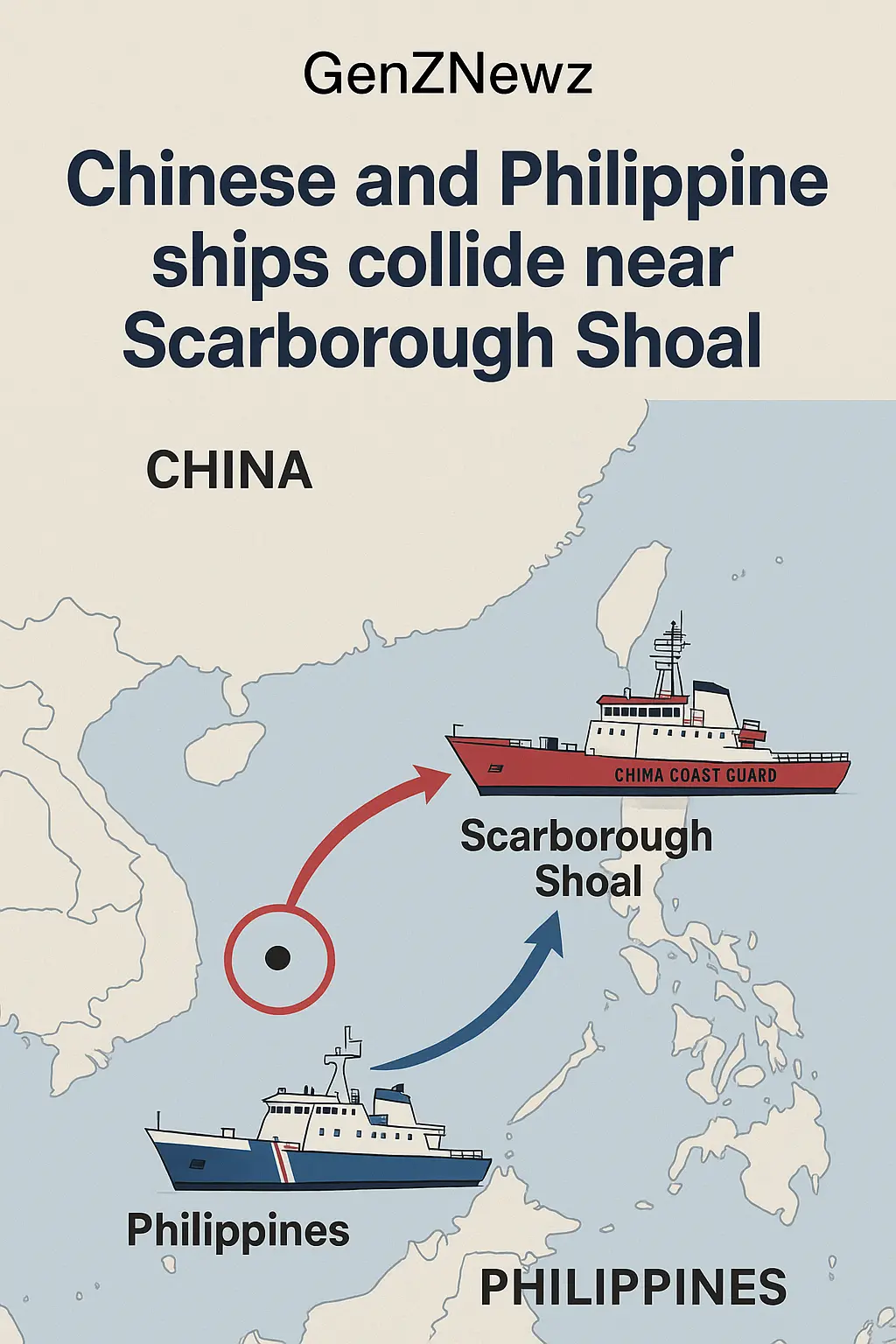What went down
On September 16, 2025, Chinese and Philippine vessels clashed near Scarborough Shoal (a disputed atoll in the South China Sea). The incident rapidly turned into a blame game — with both sides accusing the other of escalating the confrontation. South China Morning Post+4AP News+4Al Jazeera+4
China’s version: Chinese coast guard officials claimed a Philippine government ship deliberately rammed one of their vessels, and that they had responded with control measures, including verbal warnings and use of water cannons. Al Jazeera+2CBS News+2
The Philippines’ version: Manila denied the ramming claim. Instead, the Philippine Coast Guard said Chinese vessels used high-pressure water cannons for roughly 30 minutes on the Philippine fisheries supply ship BRP Datu Gumbay Piang, causing damage to the bridge and cabin, injuring a crew member, shattering a window, and even short-circuiting onboard systems. AP News+2SeafoodSource+2
This encounter happened just days after Beijing announced plans to declare parts of Scarborough Shoal a “nature reserve,” a move Manila strongly protested. AP News+3SeafoodSource+3USNI News+3
Scarborough Shoal: Why it’s so controversial
Scarborough Shoal (called Bajo de Masinloc by the Philippines and Huangyan Dao by China) lies about 200 kilometers off the Philippine coast. It’s not a big island — more like a ring of reefs and lagoons — but it’s strategically significant for a few reasons: rich fishing grounds, access to maritime routes, and symbolic national claims. Al Jazeera+2SeafoodSource+2
China has controlled access to the shoal since 2012, blocking Philippine vessels from entering. The Philippines, however, argues that the shoal falls within its Exclusive Economic Zone (EEZ) under international maritime law. Wikipedia+2Al Jazeera+2
China’s recent move to declare a nature preserve at Scarborough has raised red flags in Manila and internationally. Critics say the ecological rationale is a cover for a soft territorial takeover, further limiting Filipino access to the waters. SeafoodSource+2USNI News+2
The fallout
Fishing communities hit hardest: Filipino fishermen were actually being resupplied when Philippine vessels intervened, delivering fuel, water, ice, and other aid. The clash disrupted their operations. AP News+2SeafoodSource+2
Tensions spike at sea: China also issued a radio warning about live-fire drills in the area, which Philippine authorities said created fear among fishing fleets and coastal settlements. AP News+2CBS News+2
Diplomatic protests: The Philippines has filed a formal protest against China’s reserve declaration, calling it a thinly veiled pretext for coercion. Several countries—including the U.S., U.K., Australia, and Canada—have criticized China’s actions and reaffirmed support for Manila’s maritime claims. USNI News+2AP News+2
What to watch next
| Key Question | Why It Matters |
|---|---|
| Will Manila send more ships back? | Resupply and escort missions to Scarborough are likely to continue — and so are potential confrontations if China keeps enforcing its new sanctuary zone. |
| How far will China push control over Scarborough Shoal? | Transforming contested reefs into reserve zones could become a strategy for limiting rival nations' maritime activities under the guise of conservation. |
| Could this trigger wider naval or geopolitical escalation? | If clashes cause serious injury—or if live-fire incidents escalate—this could drag Southeast Asian partners, or even U.S. allies, deeper into South China Sea conflicts. |
| What international rules apply? | The Philippines argues its EEZ rights under UNCLOS and a 2016 arbitration ruling, both rejected by China. These legal standoffs fuel the risk of more aggressive stand-offs. Wikipedia+1 |
GenZNewz bottom line
This isn’t just another sea bump—this is symbolic and strategic escalation. Scarborough Shoal has long been a flashpoint. But China’s push to make it a nature zone and Manila’s mission to resupply Filipino fishermen turned a routine resupply mission into a showdown. In the tangled net of national claims, environmental rhetoric, and maritime law, the latest collision reveals how highly loaded even small encounters at sea can become. SeafoodSource+2USNI News+2

Comments 0
No comments yet. Be the first to share your thoughts!
Leave a comment
Share your thoughts. Your email will not be published.